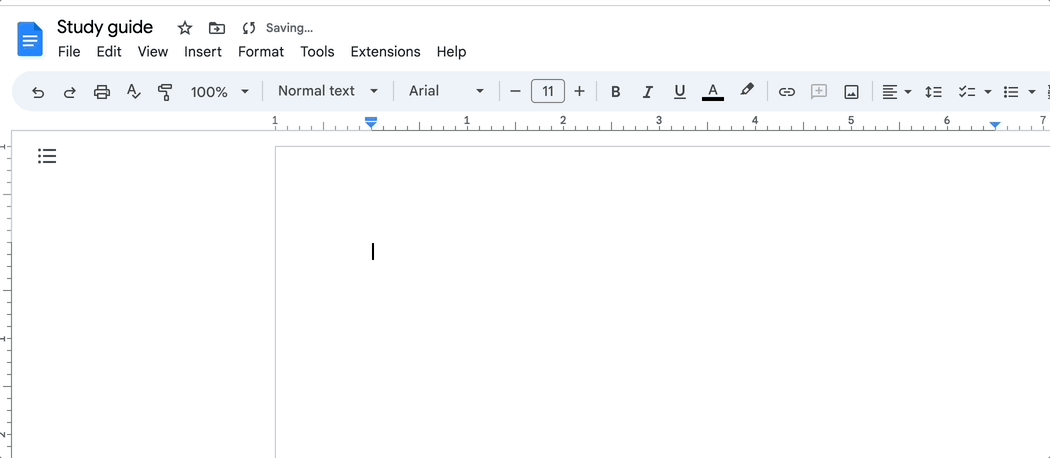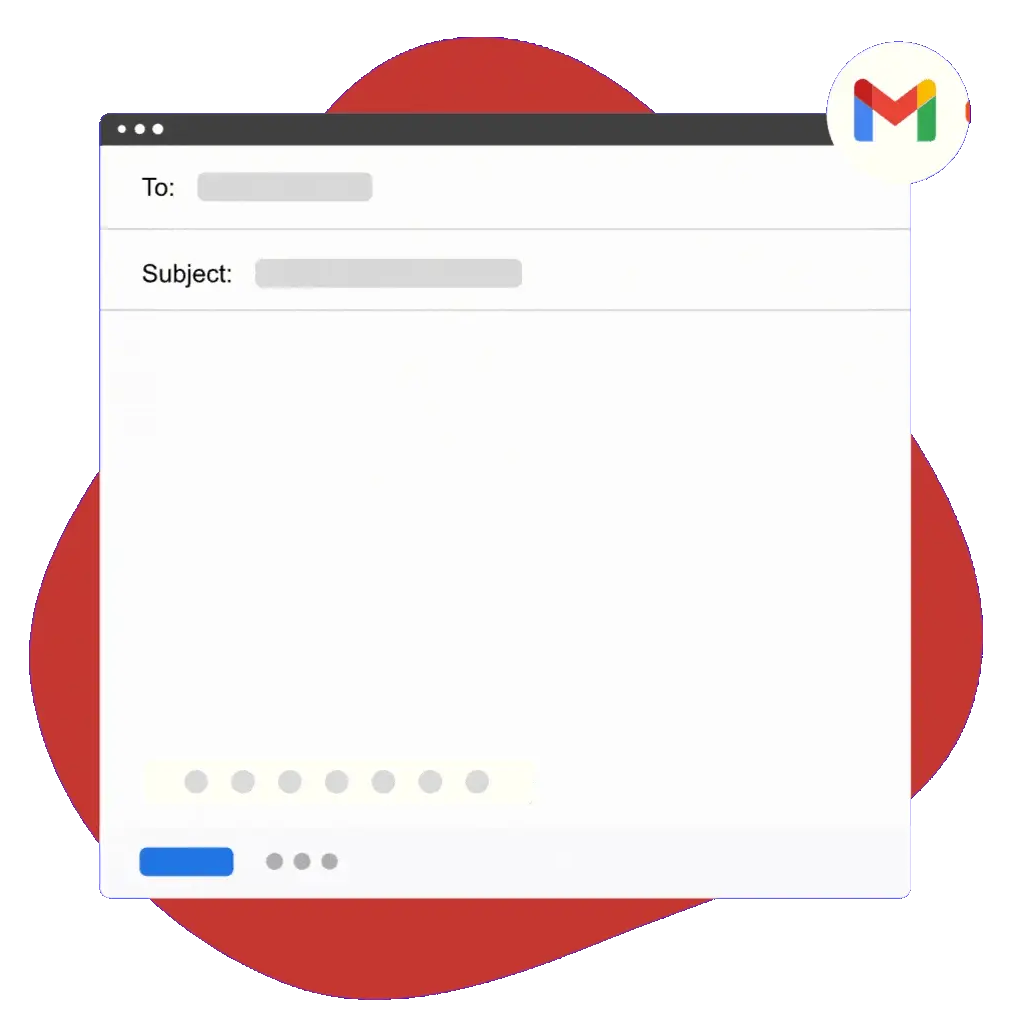How to Make GRE Vocabulary Flashcards in 2023
Vocabulary is the lifeblood of language. It's the array of words at our disposal when we want to express our thoughts, feelings, or ideas.
Whether you're drafting a professional email, giving a presentation, or preparing for a standardized test, a robust vocabulary is a tool that can take you far.
Now, imagine you're gearing up for the Graduate Record Examination (GRE). This standardized test has a significant emphasis on vocabulary, and a higher score could be your ticket to your dream graduate program.
Where do you start? That's where GRE vocabulary flashcards come in. Using online flashcards is one way to help you build your vocabulary and effectively prepare for the GRE.
In this article, we'll cover everything you need to know about making GRE vocabulary flashcards and even provide a template you can customize and use today.
What Is the GRE?
Before we dive any deeper into our discussion of GRE vocabulary flashcards, let's first demystify the Graduate Record Examination or GRE itself.
The GRE is a standardized test administered by the Educational Testing Service (ETS) and is used by many graduate schools and business schools as part of their admission process, both in the United States and around the world.
The GRE aims to measure a broad range of skills that are considered essential for success in graduate programs. It consists of three sections: Verbal Reasoning, Quantitative Reasoning, and Analytical Writing. Read on to learn more about each section.
Ultimately, the GRE tests your ability to understand, interpret, and analyze various types of written material, your mathematical skills and problem-solving abilities, and your ability to articulate complex ideas effectively and clearly.
The Verbal Reasoning section, in particular, places a significant emphasis on vocabulary. You'll encounter complex words in reading comprehension passages, text completion questions, and sentence equivalence items.
What Are the Sections of the GRE?
The GRE is divided into sections, each designed to gauge different abilities critical for success in graduate school.
Verbal Reasoning: This section tests your ability to understand, analyze, and interpret complex written material. It's about more than just vocabulary; it's about being able to discern the meanings of words, sentences, and entire texts in context. The section is further divided into three types of questions: reading comprehension, text completion, and sentence equivalence.
Quantitative Reasoning: This section measures your problem-solving skills using basic concepts of arithmetic, algebra, geometry, and data analysis. Here, you'll encounter two types of questions: problem-solving and quantitative comparison. While a calculator is allowed, the focus is more on logical thinking than computation.
Analytical Writing: Unlike the other sections, this one doesn't present multiple-choice questions. Instead, you'll have to write two essays: one analyzing an argument, and the other presenting an issue. This section gauges your ability to articulate complex ideas, support your claims with relevant reasons and examples, and maintain a focused and coherent discussion.
Experimental or Research: It's worth noting that there's also an unidentified experimental section that doesn't count towards your score or a research section. These are used by ETS (the test makers) for developing future tests.
A robust vocabulary is a potent tool for the GRE. While it's most evident in the Verbal Reasoning section, a strong command of language can boost comprehension and communication across the entire test.
Why Use Online Flashcards?
The human brain is an incredible thing, but it tends to remember information better when it's studied in short, frequent bursts rather than long, infrequent cramming sessions.
This phenomenon is known as the "spacing effect." Flashcards, especially online ones, are a fantastic tool to exploit this effect.
Online flashcards offer a level of convenience and flexibility that their physical counterparts simply can't match. They're available anywhere you have an internet connection and can be easily shuffled and customized to your needs.
Online flashcards aren't just about memorization, though. They also promote active recall - a cornerstone of effective learning.
Each time you flip a flashcard, your brain has to dig deep and retrieve the information. This process strengthens neural pathways and makes future recall easier, turning those once-daunting GRE words into familiar friends.
Tips on Making and Using Flashcards
Creating effective flashcards for your GRE vocabulary study isn't as simple as slapping a word on one side and its definition on the other.
Here's how you can craft flashcards that will truly support your learning:
Select your platform - There are many sites available that offer online flashcards, such as Quizlet or Anki. Read on to learn more about online flashcard tools.
Keep them simple - One word per card is best, along with its definition. Try to use a definition that makes sense to you. Sometimes, the simplest language is the most effective. You could also include a sentence that uses the word in context to give you a better sense of its usage.
Engaging multiple senses can also be helpful - Consider incorporating images that illustrate the word's meaning or audio to practice pronunciation.
Repetition is key - Review your flashcards regularly, ideally in multiple short sessions throughout the day. And don't be afraid to shuffle your deck; mixing up the order can help ensure you're not just memorizing the cards' sequence.
How to Make GRE Flashcards Online
Making GRE flashcards doesn't have to be a headache. Using our template below, you can add your vocabulary words and definitions and start studying in minutes.
Online Flashcards Template
Using Text Blaze and Data Blaze, you can add terms and definitions to a spreadsheet and use keyboard shortcuts to randomly generate them to help you study for the GRE.

The flashcard example provided below already includes over 50 terms helpful for studying for the GRE to give you a leg up in studying.
You can use the template below to also:
- Retrieve terms and write out your guesses for the definitions.
- Retrieve definitions and write our your guesses for the vocabulary terms.
- Update the status of terms as "memorized" so that they don't show up in the list of randomized terms, which ensures that you focus on the GRE vocabulary flashcards that you still need to memorize.
Conclusion
Preparing for the GRE can be daunting, but with the right strategies in place, it's more than manageable. GRE vocabulary flashcards, especially online versions, offer a convenient, flexible, and effective way to build a robust vocabulary.
Making your flashcards simple, engaging, and practicing with them regularly can significantly enhance your learning. Remember, every word you learn is a step closer to acing the GRE and achieving your academic goals.
Use our template above to create online flashcards and start studying for the GRE in minutes.
Hi there! You made it all the way down to the bottom of this article. Take a few seconds to share it.
Want to turbo charge your work with templates and snippets? Text Blaze is the fastest way to do that.







